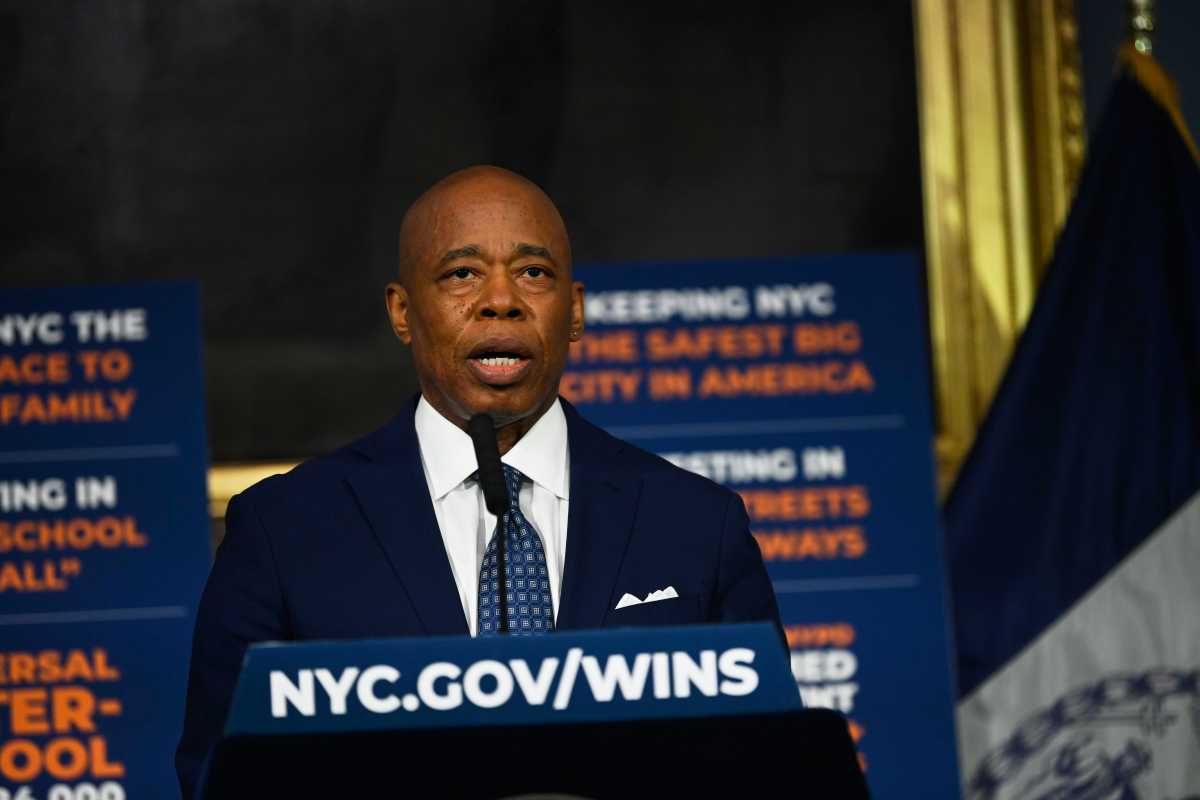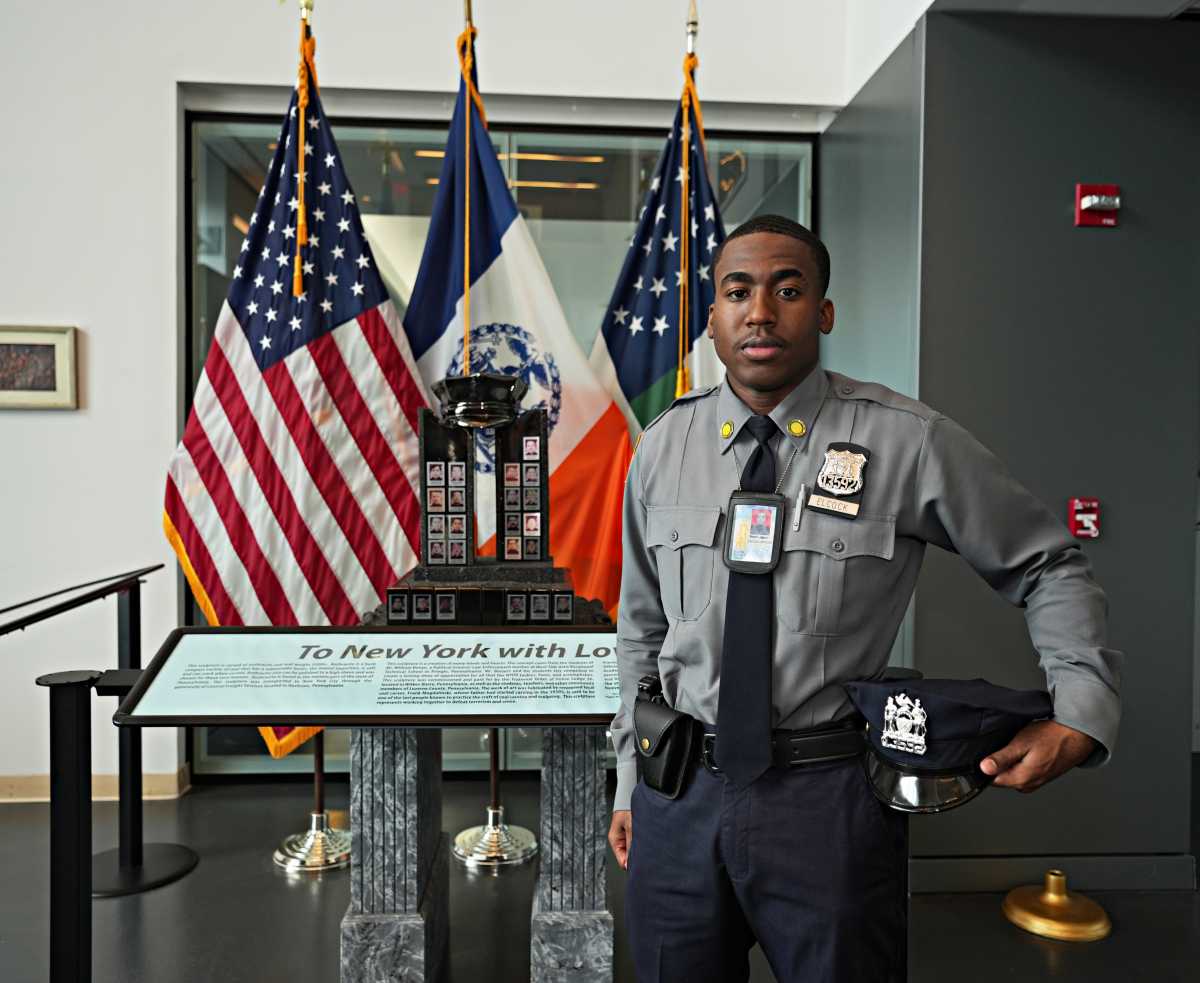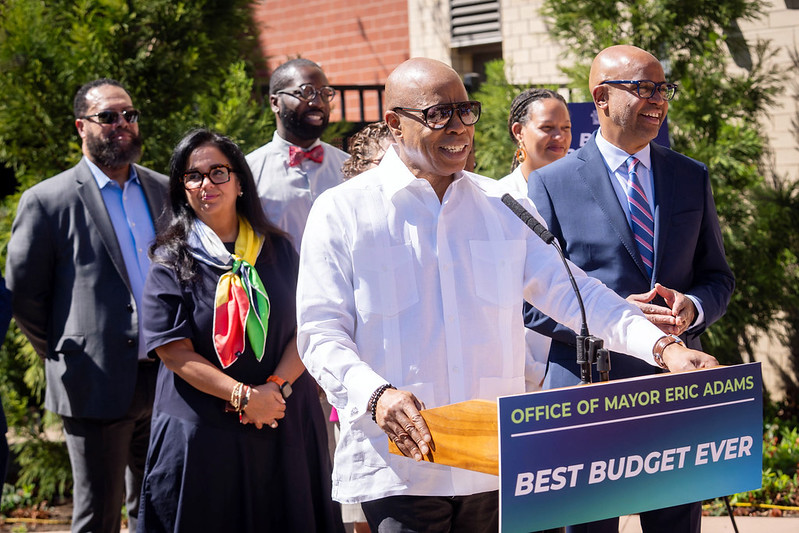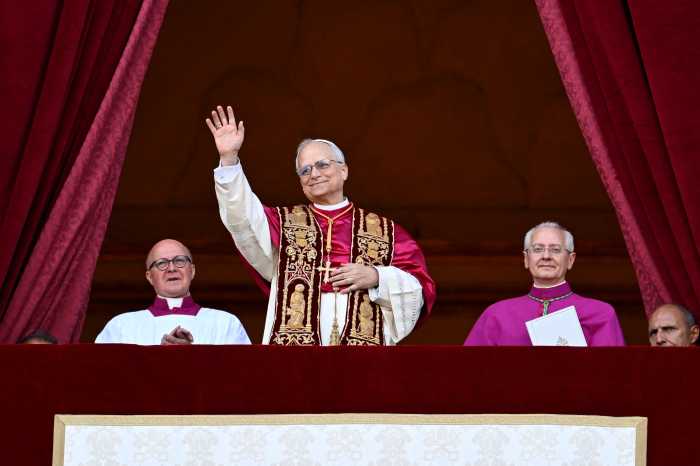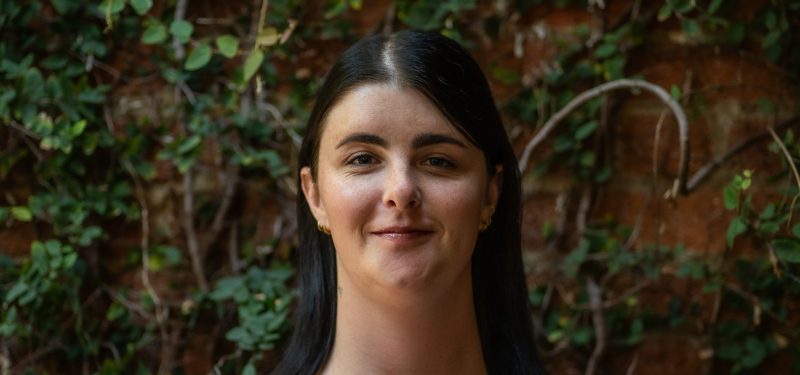As most people go about their daily lives, many are unaware that, at any given moment, those living in Darfur in the western region of Africa’s Sudan may face certain death.
Dr. Arthur Flug, Executive Director of the Holocaust Resource Center & Archives in Bayside, informed Queensborough Community College (QCC) students that even as we speak, a bloody genocide is occurring in the area.
“Genocide means to take a whole people and destroy them in the most brutal possible way,” Flug said before introducing the guest speaker - City Councilmember Eric Gioia - who told the students what they can do as individuals and as a group to help.
Along with becoming more informed and participating in rallies, Gioia advocated divestment in Sudanese companies that support the genocide in Darfur - an expanse of harsh desert the size of California.
Gioia urged the students to look at their stock holdings and their parents’ stocks to make sure that the money was not being invested in companies that provide funding to the Sudanese government.
“I don’t want to make money from a company that is using its money to support crimes against humanity,” Gioia said, adding that divestment should be targeted to companies that support the genocide and not ones that have given aid to the estimated 2.5 million refugees.
Although American companies have been banned from doing business with Sudan since 1997, international companies - and particularly oil conglomerates, Gioia said - have created ties to the Sudanese government. Organizations like DivestSudan estimate that 83 public companies, including Petro-China, Siemens AG, and Alcatel SA, all support Sudan’s regime.
The Sudanese government is widely believed to be working with the Janjaweed militia in Darfur to exterminate the region’s poor farmers.
In addition to personal divestment, Gioia, along with several other city leaders, recently introduced a non-binding resolution, calling both the city and state to divest funds from corporations doing business with Sudan. A similar resolution is currently in the state legislature for review.
But with such a wide scope, many wonder if the plan is feasible.
Gioia pointed to the city’s divestment of funds from the apartheid in South Africa in 1985 as an instance when New York used its financial clout to advocate an international political position.
“The entire world watches New York City … When we do something, the world copies us,” he said, explaining that the reasoning behind the divestment - if not financial - should be moral. “For the first time, the genocide is happening in real time. As we speak, atrocities are being committed.”








